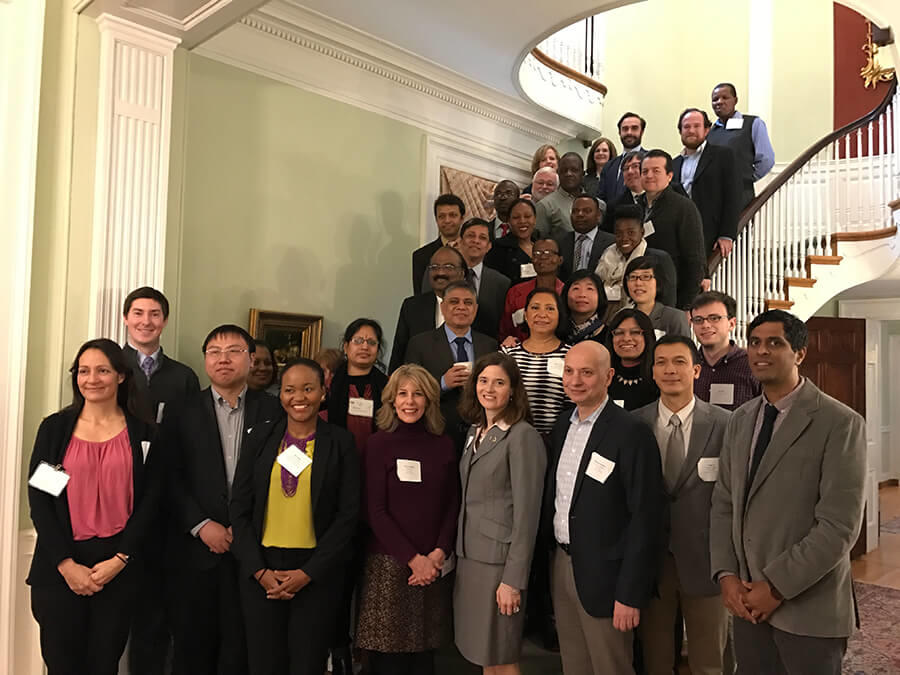CGH Hosts the Regional Centers of Research Excellence Program Launch Meeting for Cohort 1 Investigators
, by Shannon Silkensen, John Flanigan, & Nick Wolf
Non-communicable diseases (NCDs) include the four most prominent chronic diseases, namely cardiovascular diseases, cancers, chronic respiratory disease, and type-2 diabetes; as well as mental health disorders, allergy, asthma, and injuries. Together, these diseases account for more than 72% of premature deaths globally [1]. Low- and middle- income countries (LMICs) carry a disproportionate burden of NCDs; both mortality rates and disability from NCDs are considerably higher in LMICs than in high-income countries.
To address this growing burden of NCDs, the NCI’s Center for Global Health launched the P20 planning grant program to facilitate the planning and designing of Regional Centers of Research Excellence (RCREs). These Centers will 1) strengthen scientific quality and volume; 2) boost collaboration; 3) fortify the scientific shared core facilities; 4) enhance research activities; and 5) provide the scientific evidence needed to inform public policy about NCDs in LMICs. This grant program, RFA CA15-007, was announced in September 2015 and seeks to fund two cohorts of investigators. Six meritorious applications were selected for award among the first cohort of applicants, and in June 2016 the collaborative research began in an effort to establish regional centers of research excellence in Bangladesh, India, Malawi, Mexico, India, and Vietnam.
In January of 2017, CGH convened the first meeting of the principal investigators funded in the first cohort. These investigators gathered to share their Research Center plans and provide feedback to one another. The meeting began with a day of tours. Participants visited the NCI Biobank in Frederick where they viewed and discussed the pros and cons of using mechanical versus nitrogen freezers in their local environments. Next, they visited NIDDK’s Metabolomics Lab and the NCI’s Laboratory of Pathology where they talked about their pathology slide preparation methods.
Dr. Ted Trimble, Director of the Center for Global Health opened the second day of meeting with welcoming remarks and a call to action. The first session of the meeting was dedicated to delivering a consistent message to all grantees. It included presentations that encompassed programmatic, grants management, and human subjects requirements. This was followed by scientific presentations. Attendees shared their scientific overviews, their planned shared resources, and their research enhancement activities for their respective RCRE Centers. In addition, each Center presented preliminary data that formed the basis of their proposal, and also discussed the demonstration projects they sought to accomplish during the two-year planning period. On the second day, grants management and human subjects experts from NCI and NIH outlined guidelines and procedures associated with NIH awards. Following this, the grant manager and human subjects representative from each of the RCRE sites presented the state of the financial and regulatory affairs at their institution. The Launch Meeting closed with presentations from the Centers outlining their vision for future activities of the RCREs.
From our perspective, this meeting was only the beginning. CGH plans to support a second cohort of P20 RCRE Planning Grant recipients in FY17, and intends to develop a more expanded global cancer research program. As this comes into focus, it is clear we are all committed to working together so that the RCRE community will contribute to identifying new causes, interventions, and therapies for cancer.
Thank you to all the RCRE meeting participants and team members; you make this Program a success! Shannon, John, and Nick.
